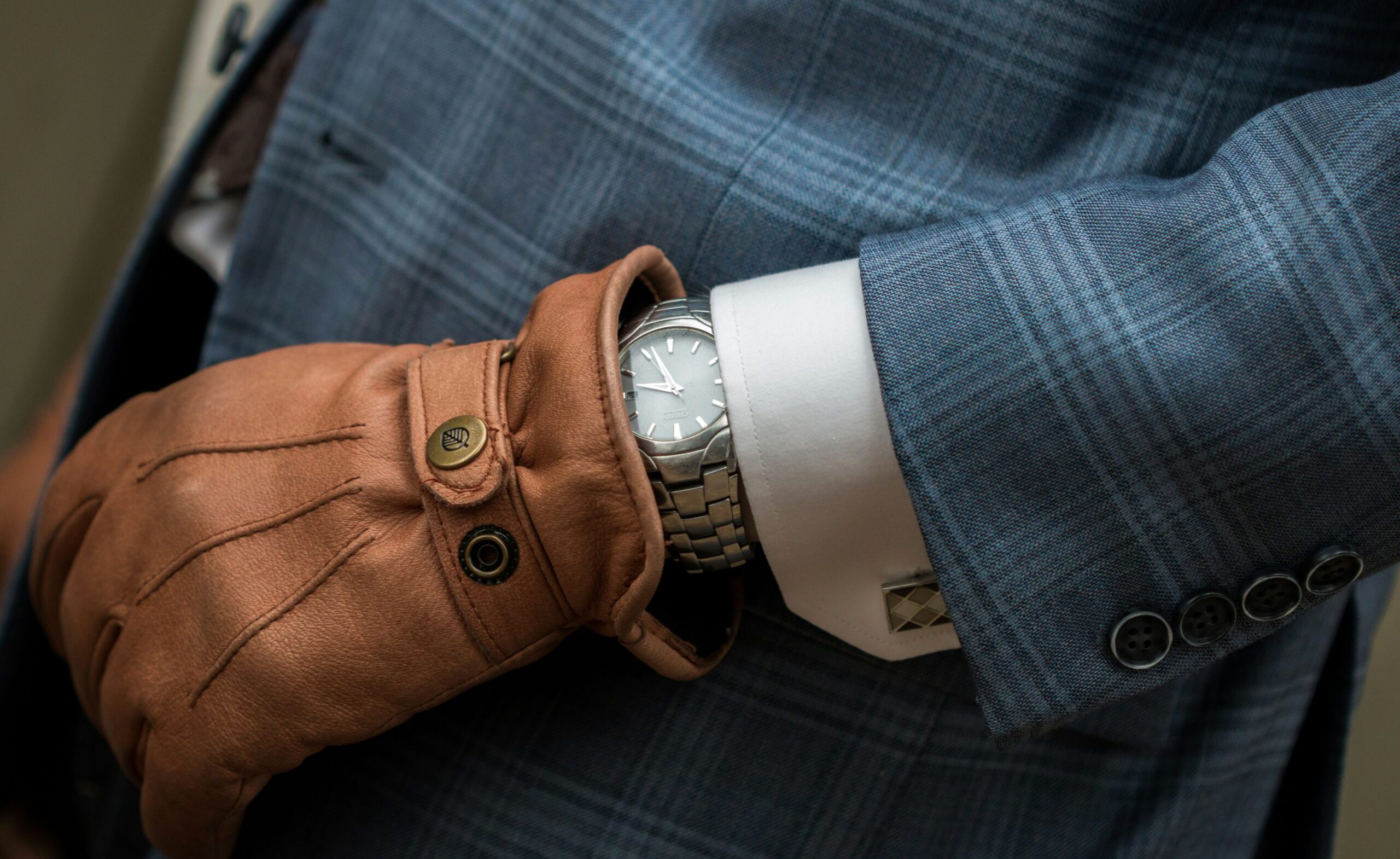
The luxury fashion industry, long critiqued for its environmental footprint and ethical dilemmas, particularly regarding traditional leather use, is undergoing a transformative shift towards sustainability.
Vegan leather is at the forefront of this change, heralding a new era in luxury fashion that champions innovative materials, ethical production, and consumer consciousness.
Luxury Brands Leading the Vegan Leather Revolution:
Luxury fashion houses are embracing vegan leather, integrating it into collections that stand at the pinnacle of style and sophistication. These pieces challenge preconceived notions about vegan materials, showcasing their potential to create garments and accessories that are at once lavish, innovative, and kind to the planet. The adoption of vegan leather by high-end designers not only elevates the material but also signals a significant shift in the industry’s values.
Material Innovation Behind Vegan Leather:
The journey of vegan leather from concept to catwalk has been propelled by remarkable technological advancements. Designers and scientists collaborate to create materials that not only mimic the look and feel of animal leather but surpass it in durability, versatility, and sustainability.
The luxury fashion scene is ablaze with vegan leather innovations, signaling a shift towards a more conscious approach to design and production:
- 3D Printing: The advent of 3D-printed vegan leather items is pushing the boundaries of customization and waste reduction, allowing for intricate designs that were previously unattainable.
- Recycled and Upcycled Materials: The trend towards using recycled plastics and rubber in vegan leather production underscores the industry’s commitment to circular fashion, reducing waste and resource consumption.
- High-Performance Vegan Leather: Recent developments have led to vegan leathers that are not only water-resistant and breathable but also comparable to traditional leather in durability and feel, appealing to a wider range of consumers.
Today there are many sustainable alternatives crafting vegan leather, from fruit waste like apple peels to recycled plastics and groundbreaking bio-based materials.
Pioneering Natural Materials in Vegan Leather
Vegan leather is a testament to creativity and environmental stewardship, transcending traditional boundaries with materials that are as diverse as they are innovative. Among the vanguards:
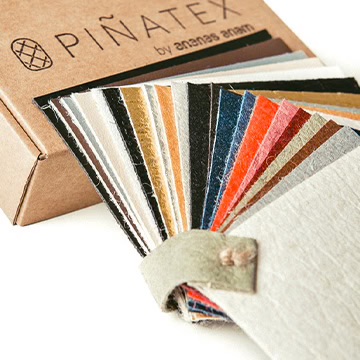
Pineapple: Piñatex is a well-known vegan leather made from the fibers of pineapple leaves. It’s durable, flexible, and used in a variety of fashion products, from shoes to handbags.
🔗Pinatex
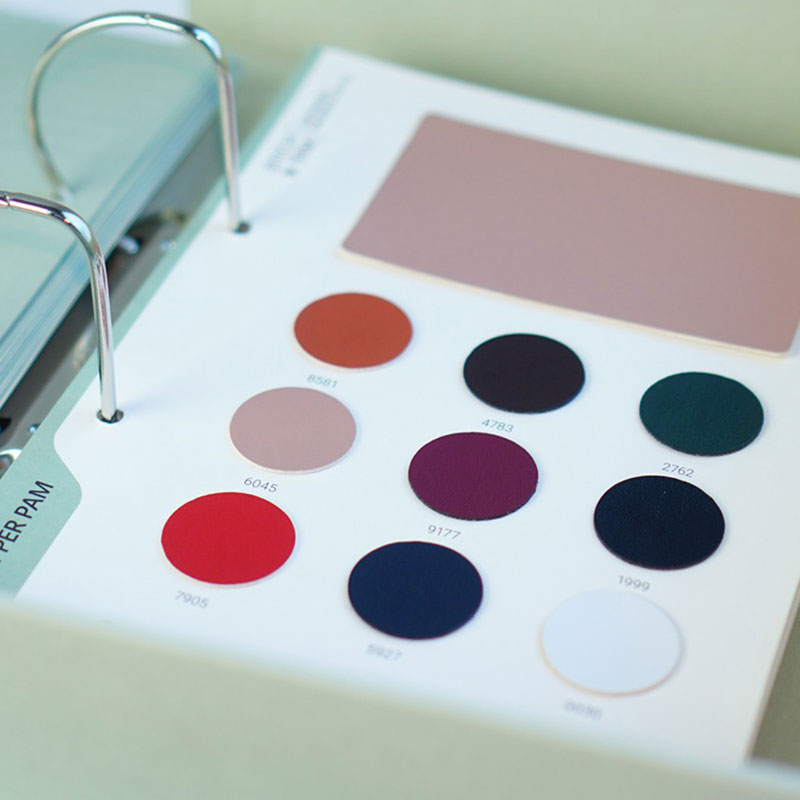
Apple: Utilizing discarded apple peels and cores from the juicing industry, apple leather presents a circular solution to fashion’s waste problem, offering a material that’s both sustainable and stylish.
🔗Apple Leather
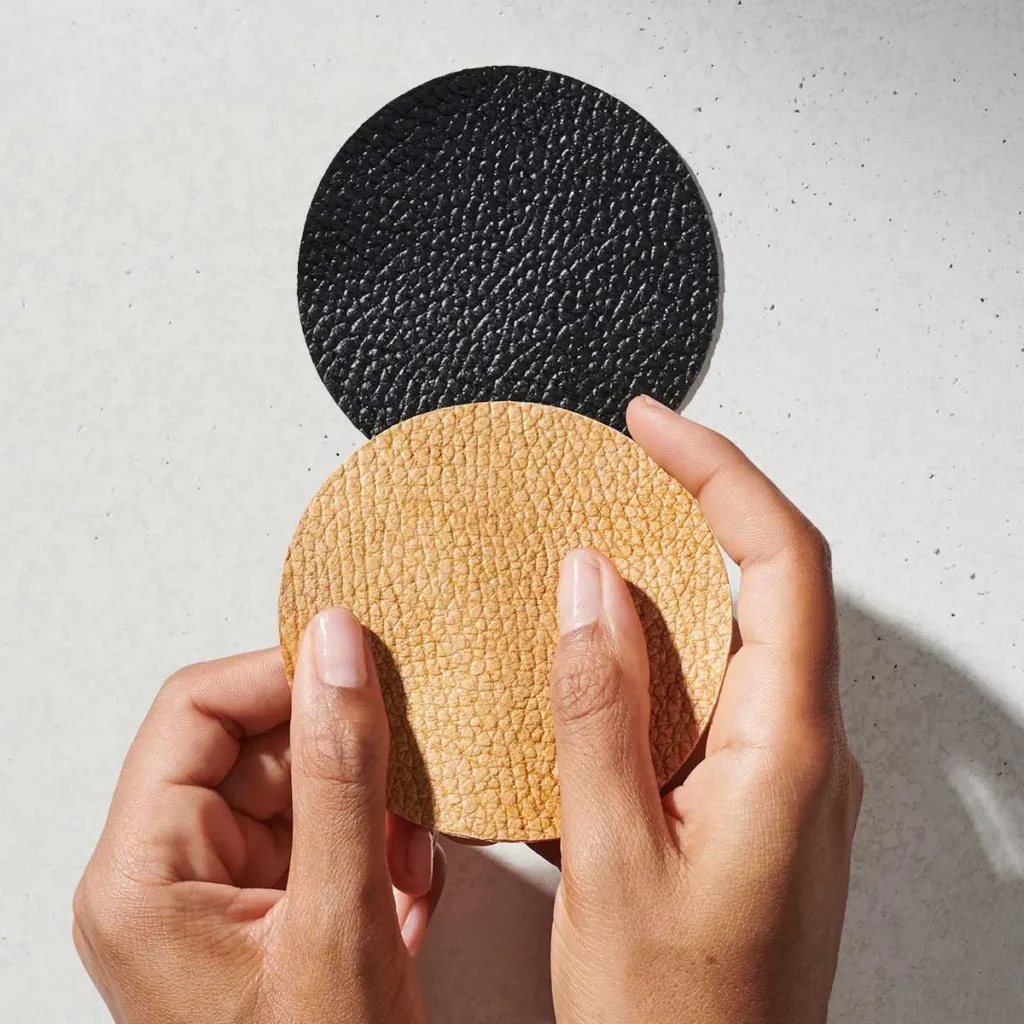
Mushroom: Mycelium, the root structure of mushrooms, is engineered to create a material that mirrors the softness and texture of animal leather. This material is biodegradable, soft, and can be grown in controlled environments to produce leather in a matter of weeks.
🔗Mylo
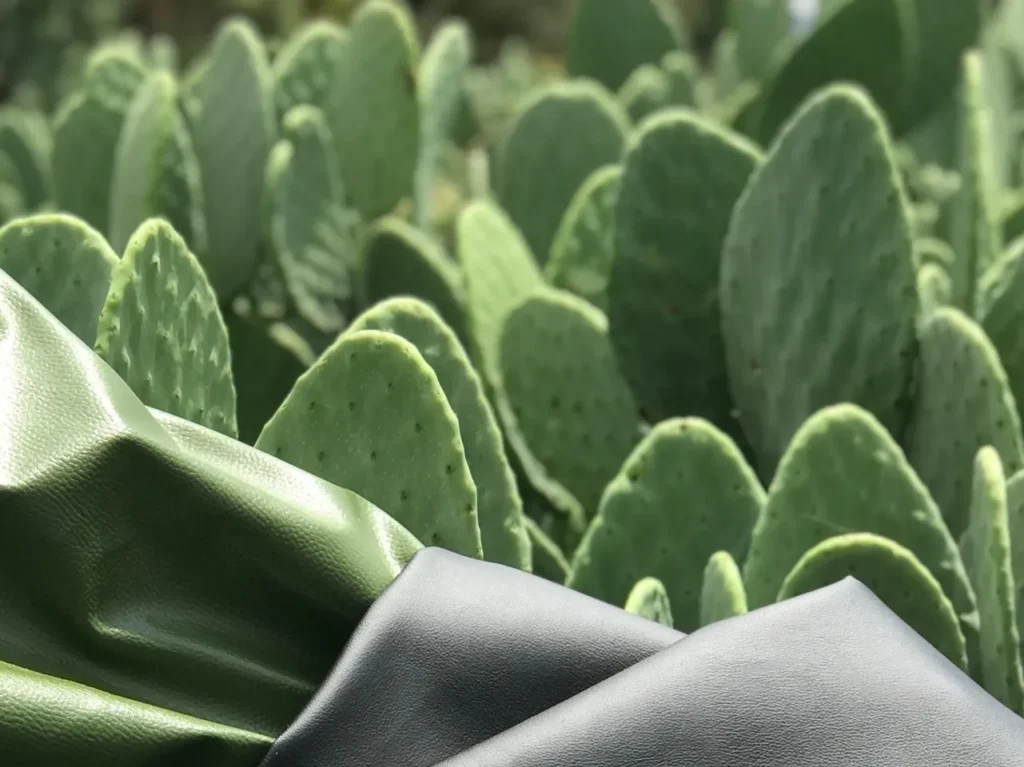
Cactus: Harvested from nopal cactus leaves, this innovative material boasts remarkable sustainability credentials, requiring minimal water and no pesticides, making it a favorite among eco-conscious designers.
🔗Desserto
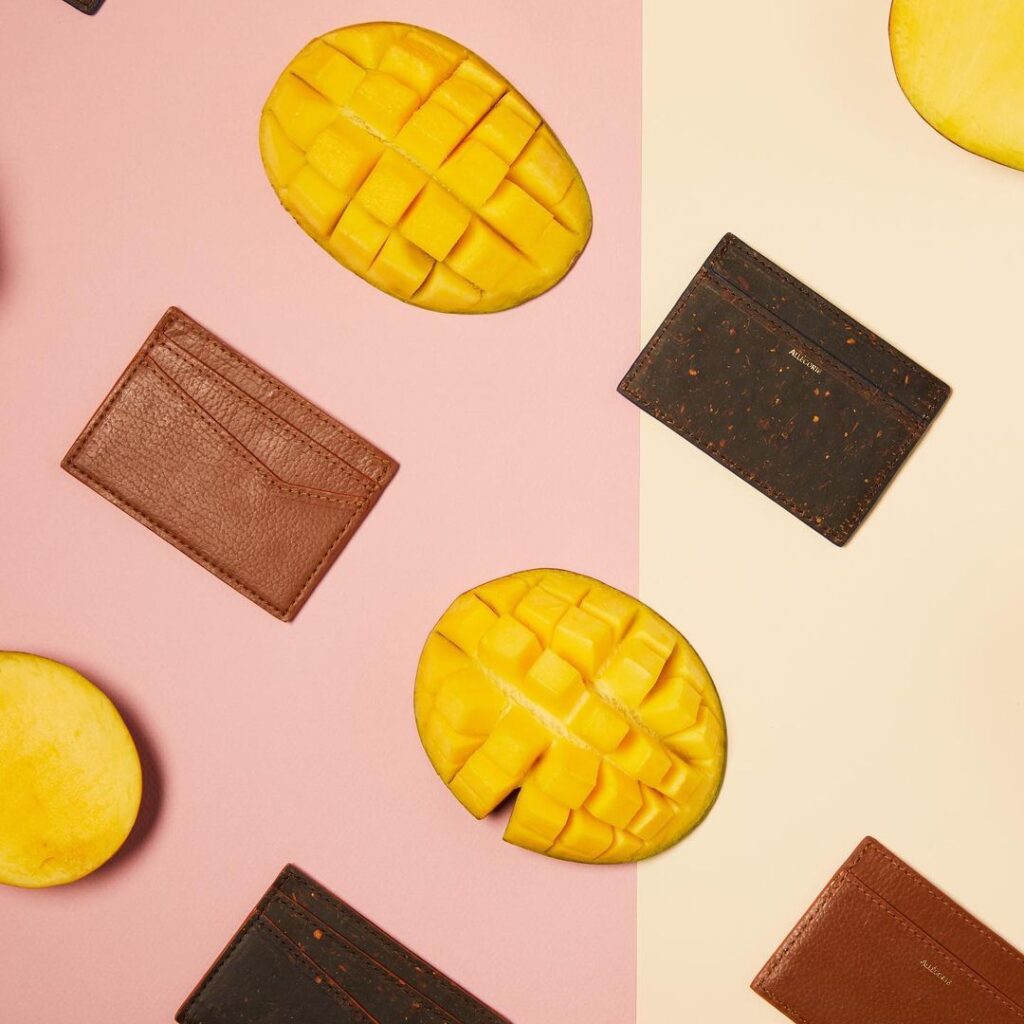
Mango: Fruitleather Rotterdam transforms mango waste, primarily collected from fruit markets and groceries that would otherwise be discarded, into a durable and eco-friendly leather alternative. This process not only helps in reducing food waste but also offers a sustainable, cruelty-free material for use in fashion, accessories, and upholstery.
🔗Fruitleather
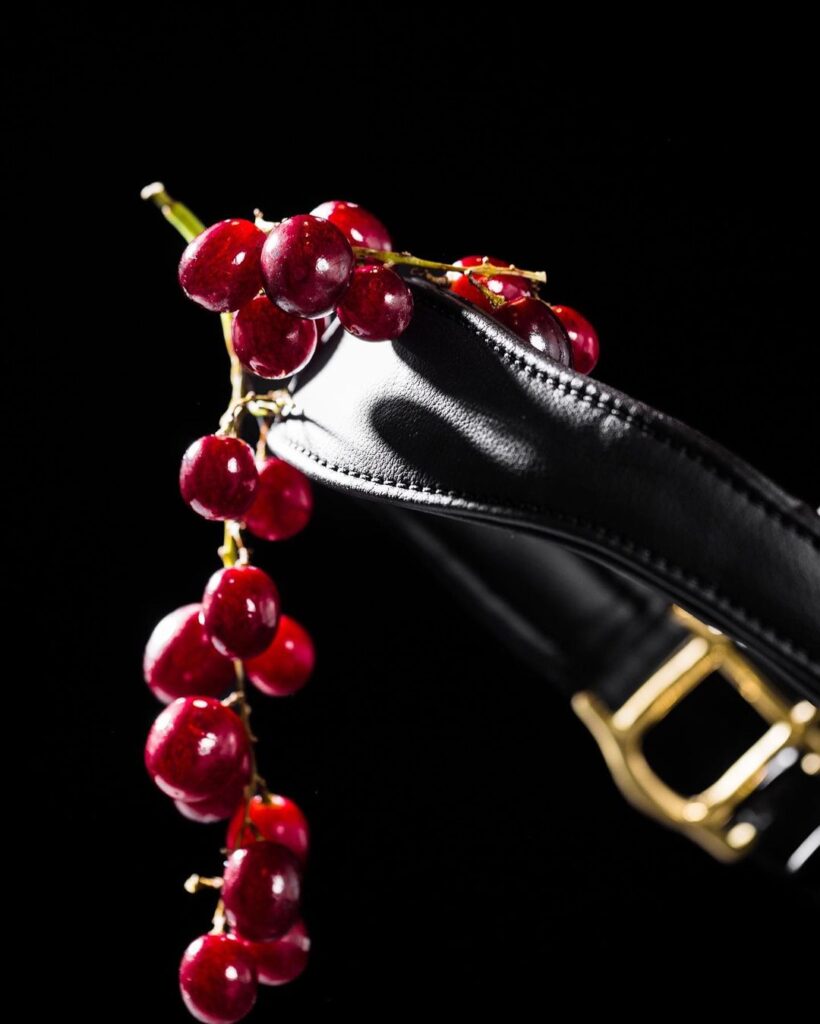
Grapes: Vegea uses grape waste from the wine industry, including skins, branches, and seeds, to create a vegan leather. This material is being explored for use in fashion, furniture, and automotive industries.
🔗Vegea
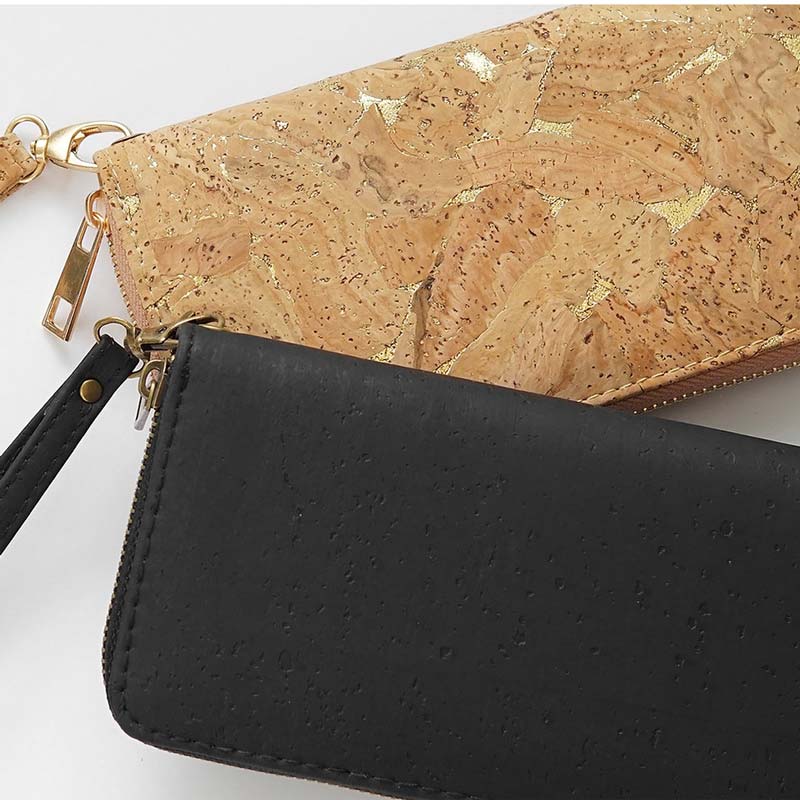
Cork: Harvested from the cork oak tree without harming the tree, cork leather is lightweight, waterproof, and durable. It’s used in a wide range of products, including shoes, bags, and accessories.
🔗HZCork
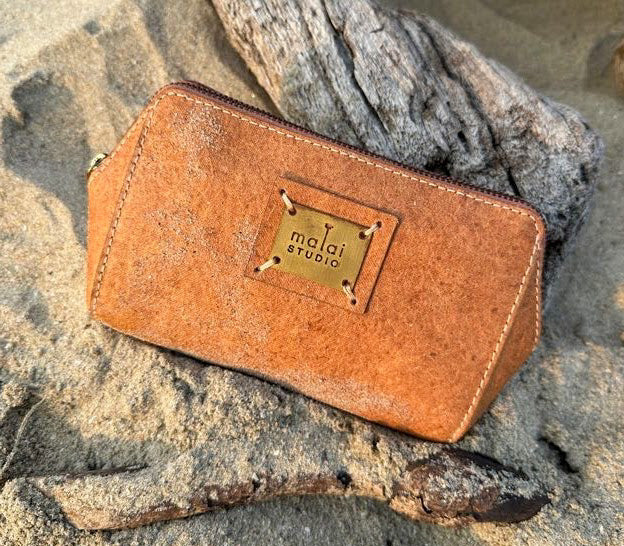
Coconut: Malai is a biocomposite material made from bacterial cellulose grown on agricultural waste sourced from the coconut industry. It’s flexible, compostable, and used in accessories and clothing.
🔗Malai
Luxuriche Selections:
In the spirit of sustainable innovation and ethical elegance, Luxuriche is proud to present a curated selection of luxury and niche fashion items that embrace the beauty and resilience of vegan leather.
Frayme Mylo™️ Shoulder Bag by Stella McCartney
The Frayme Mylo bag is characterised by its two-tone chain-link top handle: a nod to the label’s bestselling Falabella styles. It’s crafted from Mylo™️ leather to a gently curved silhouette and is decorated with a logo-engraved medallion charm.
🔗Shop Now
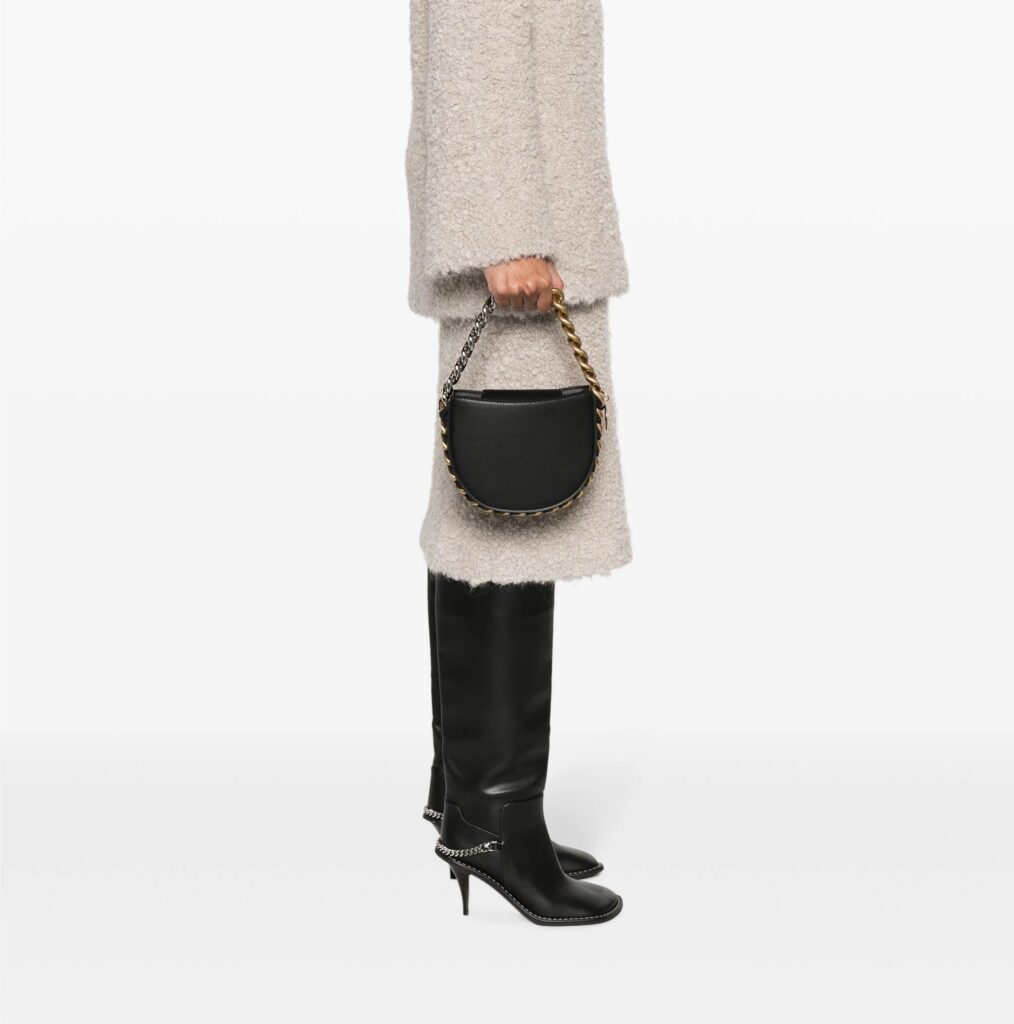
Pink Gala Cardholder by Allégorie
Compact cardholder with a simplistic silhouette and colorful inside, crafted from natural apple peel and plant-based materials. This bifold cardholder is all you need for a quick errand, with just enough space for an ID, cash and ATM cards. The sleek appearance of will also complement any outfit.
🔗Shop Now
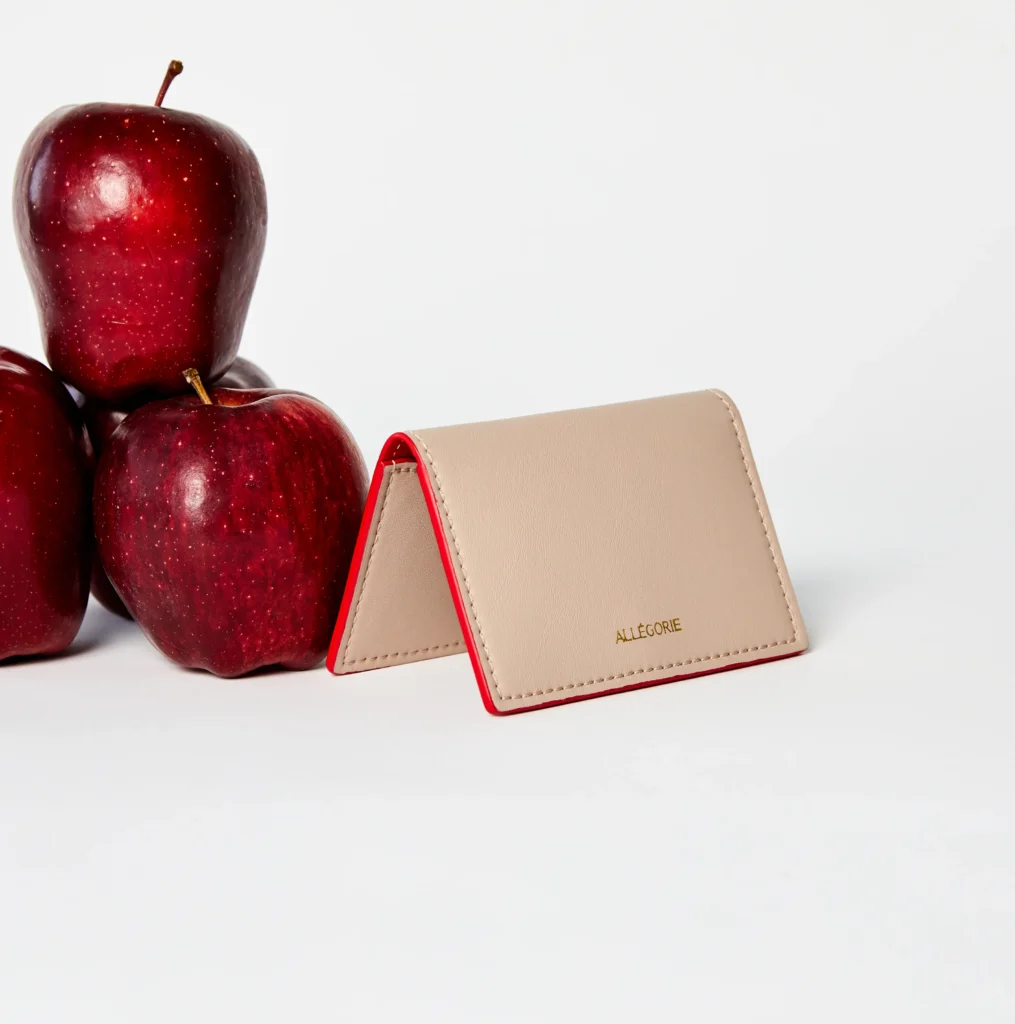
Grape Sneakers by Pangaia
These comfortable cushioned sneakers are made from a super-soft plant-based alternative to animal leather, created with repurposed waste from the winemaking industry. The sole is made from 86% natural rubber.
🔗Shop Now
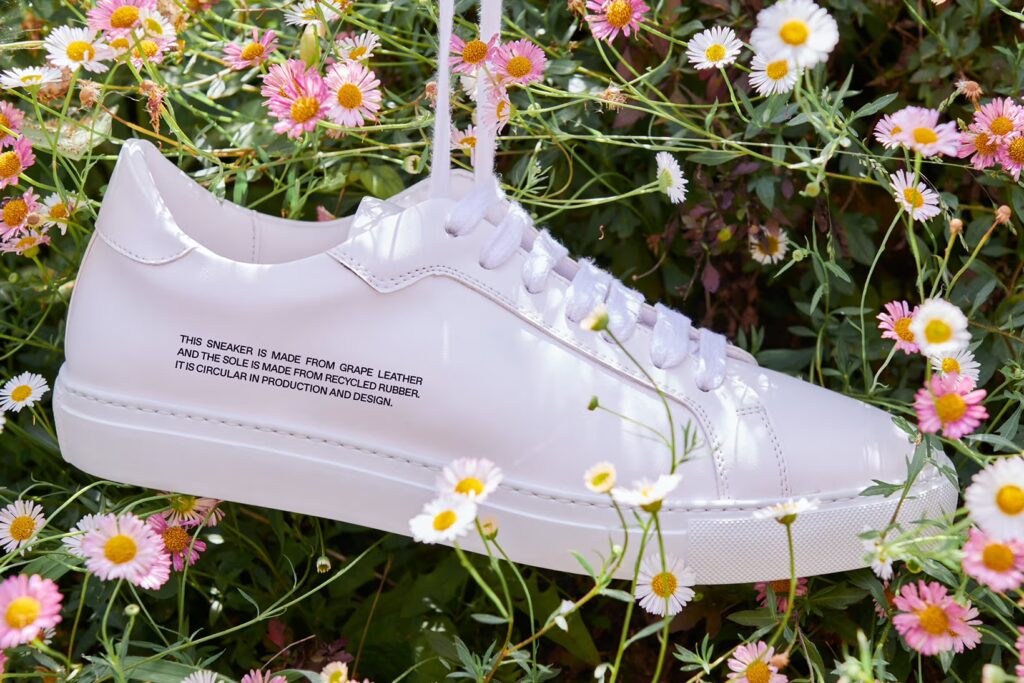
Ruth Straight Pants by Maison Bogomil
This alluring red women’s pants made of separate pieces of plant-based leather, with an elegant straight silhouette design.
🔗Shop Now
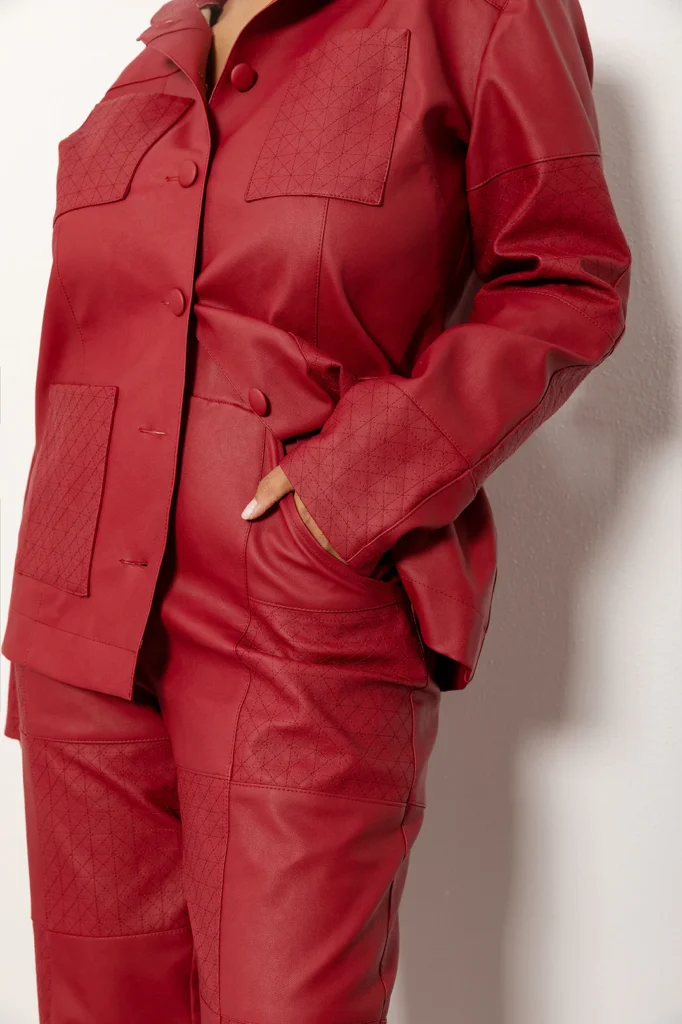
Hexagon Bag by Mianqa
The noteworthy hexagon shape of ELIF bag, is inspired by Minanqa signature hexagon weave design, Anqa weave. The hexagon bag comes with a long adjustable shoulder strap and a mirror under the flap and it will accompany you everywhere with its spacious interior design. Made of apple leather, which is a vegan leather, produced by using fibres derived as residuals from the industrial processing of apples.
🔗Shop Now
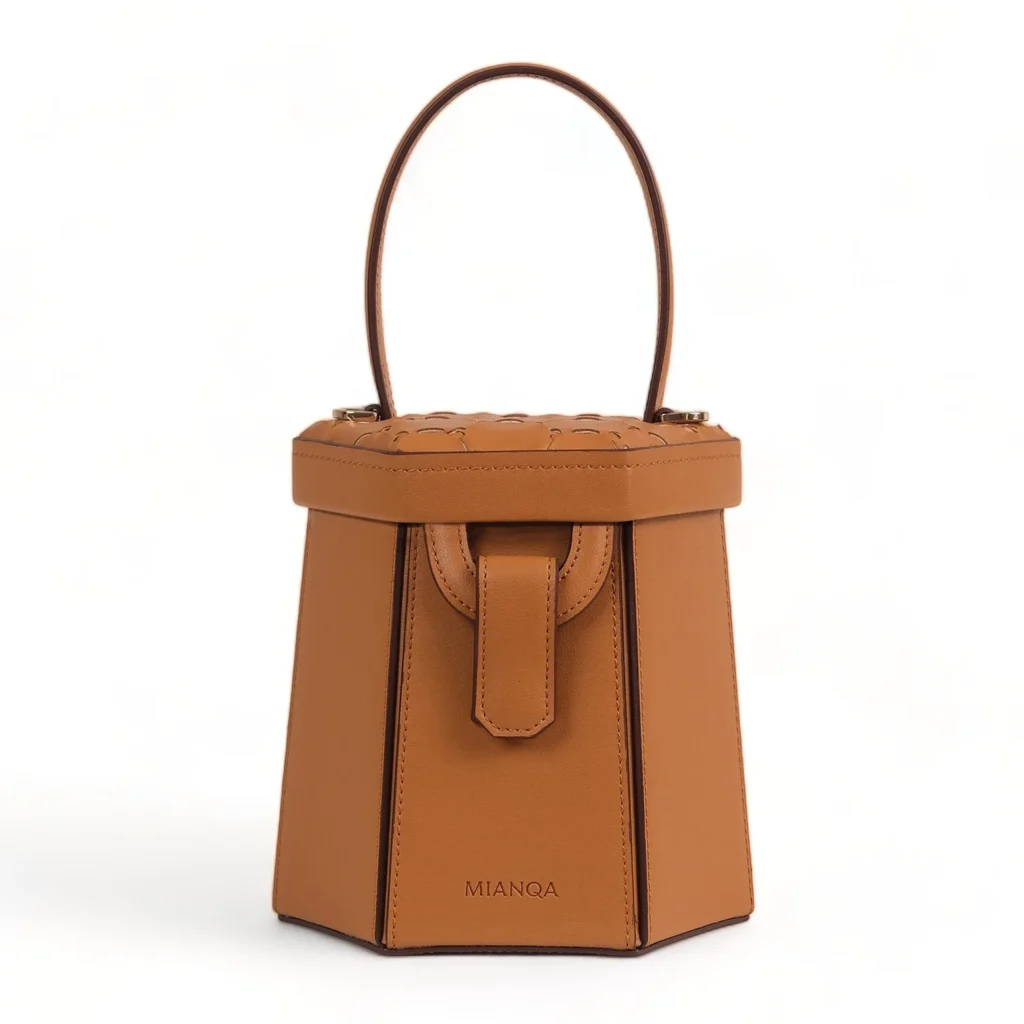
Envisioning the Future
The trajectory of vegan leather in luxury fashion is not just a fleeting trend but a harbinger of the industry’s sustainable future. As technology advances and consumer awareness grows, the possibilities for ethical luxury expand, promising a world where fashion not only looks good but does good.
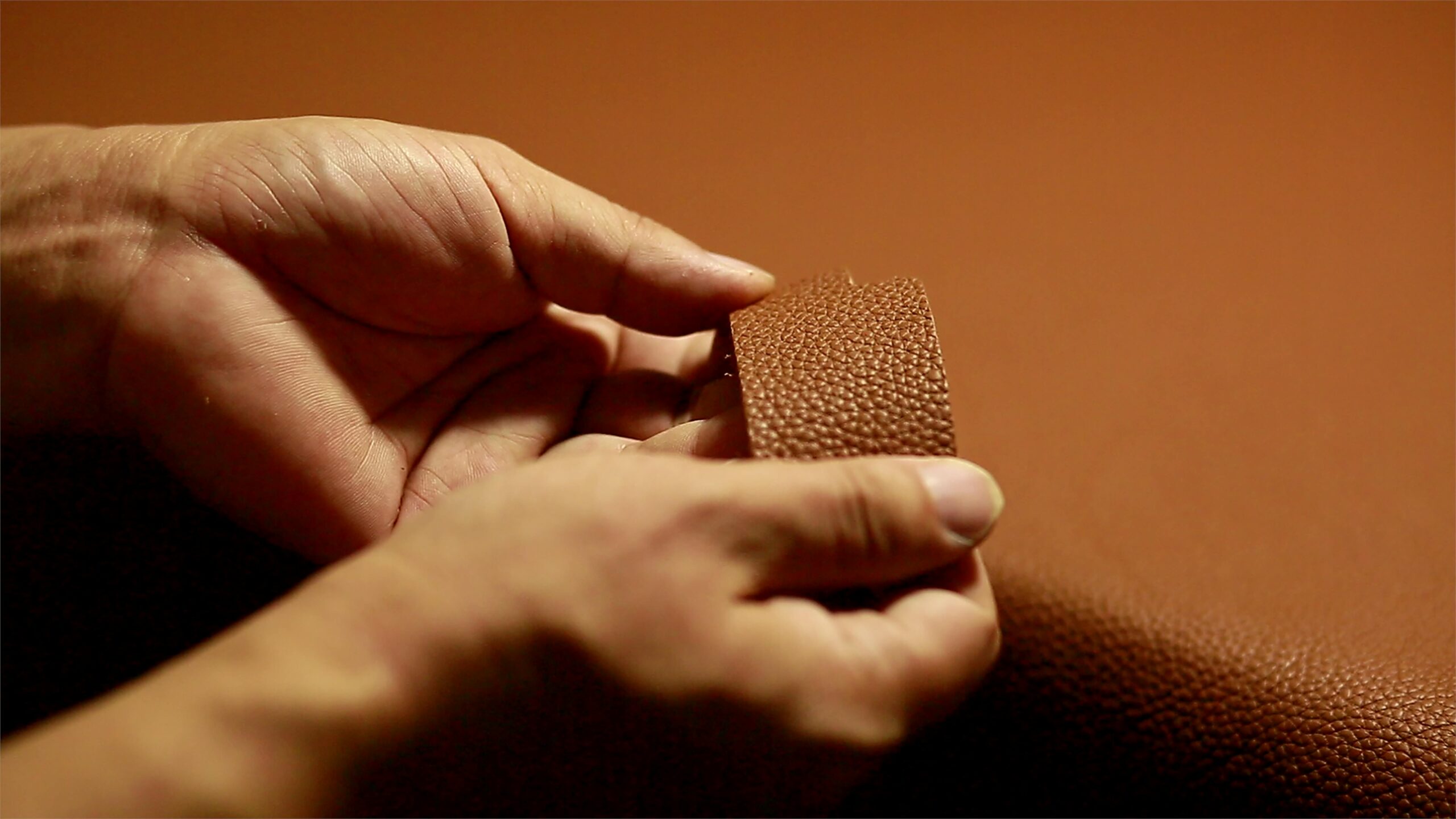
The embrace of vegan leather by the luxury fashion industry is emblematic of a broader cultural shift towards sustainability and ethical consumption. Consumers are increasingly seeking products that align with their values, driving demand for high-quality, eco-friendly alternatives to traditional materials. Luxury brands are responding by redefining the essence of opulence, proving that sustainability can go hand-in-hand with luxury.
This raises a compelling question: As we continue to witness this transformative era, how will our perception of luxury evolve, and what new innovations will emerge to meet the growing demand for ethical elegance?